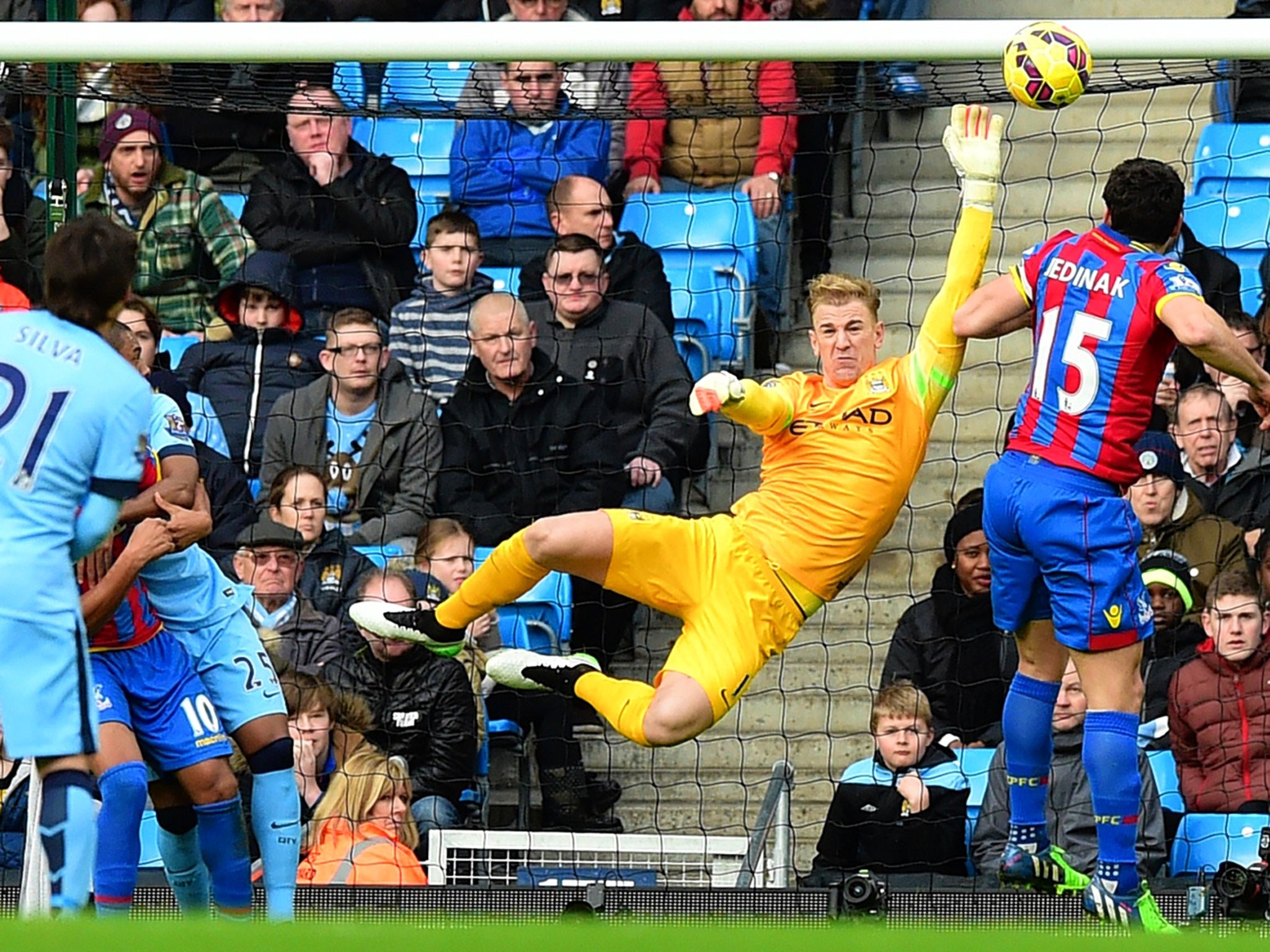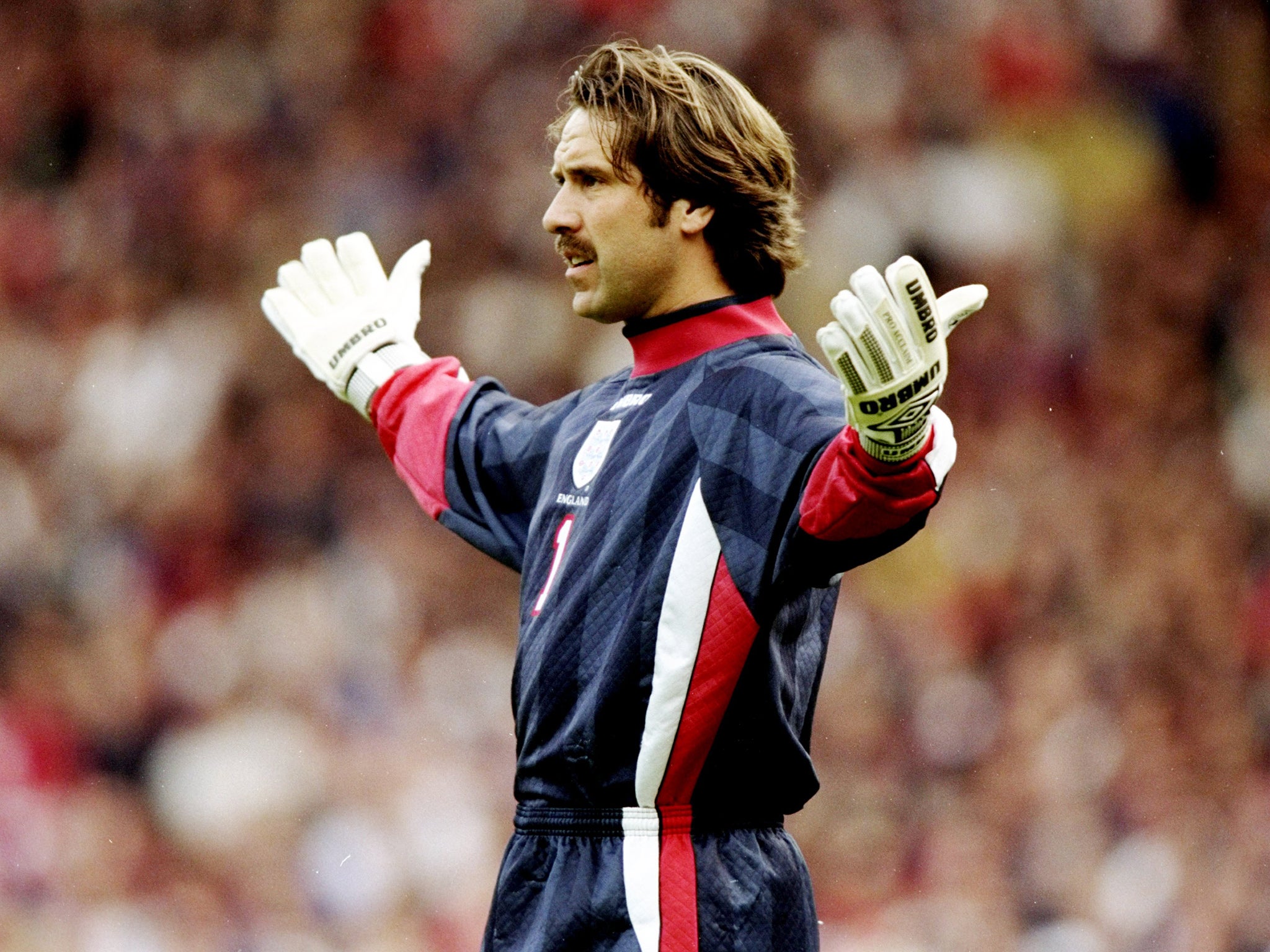English keepers, once reckoned the world’s best, are now an endangered species
THE WEEKEND DOSSIER: For an England manager this lack of depth is a worry

Your support helps us to tell the story
From reproductive rights to climate change to Big Tech, The Independent is on the ground when the story is developing. Whether it's investigating the financials of Elon Musk's pro-Trump PAC or producing our latest documentary, 'The A Word', which shines a light on the American women fighting for reproductive rights, we know how important it is to parse out the facts from the messaging.
At such a critical moment in US history, we need reporters on the ground. Your donation allows us to keep sending journalists to speak to both sides of the story.
The Independent is trusted by Americans across the entire political spectrum. And unlike many other quality news outlets, we choose not to lock Americans out of our reporting and analysis with paywalls. We believe quality journalism should be available to everyone, paid for by those who can afford it.
Your support makes all the difference.A goalkeeper is used to standing alone, but Joe Hart will very much be the odd man out today. In an eight-match Premier League programme he is likely to be the only English goalkeeper on duty.
This is partly because Norwich City play tomorrow and Stoke City on Monday, partly because Ben Foster is injured, but primarily because English goalkeepers are finding it even harder than native players in other positions to win a place in the game’s most multinational league.
When Peter Shilton and Ray Clemence were contesting the England No 1 shirt, with Joe Corrigan and Phil Parkes in the wings and the likes of Mark Wallington and Paul Cooper the supporting cast, it seemed English keepers, who caught the ball rather than punched it, were the world’s best.
They were certainly the best at dealing with the physicality of the English game. Now, although keepers as good as David De Gea struggle at first to deal with the mid-air buffeting, better protection from referees and specialist coaching enable foreign custodians to bridge the gap swiftly. The need for keepers to be technically proficient with their feet usually favours foreigners.

Thus, amid the speculation swirling around De Gea earlier this season the idea that the Spanish No 1 might be permanently replaced between the Old Trafford sticks by an Englishman was never raised. There is only one English keeper operating at a level to satisfy Manchester United’s ambitions, and Manchester City are never going to sell Hart to their neighbours.
Hart is not the only English goalkeeper holding down a place in the Premier League, but his only company this weekend is likely to be John Ruddy of Norwich and Jack Butland of Stoke. The cupboard might not look so bare but for injuries to Foster and Fraser Forster, Hart’s understudies in the 2014 World Cup squad. West Bromwich’s Foster should reclaim his place when fit, but Forster may not – Southampton manager Ronald Koeman has brought in his Dutch compatriot Maarten Steklenburg.
In the circumstances it is hardly surprising the England manager, Roy Hodgson, dipped into the Football League, where most keepers are still English, to fill the bench last week. Burnley’s uncapped Tom Heaton supported Butland as he played his first full 90 minutes for England on Monday. Depending on Foster’s recovery they could both go to France next summer. It is a far cry from France 1998, when David Seaman was backed by two hugely experienced No 1s in Tim Flowers and Nigel Martyn.
The net had to be cast even wider by Under-21 coach Gareth Southgate. With a new age cycle starting, it has been a struggle to find three eligible goalkeepers. Butland, Jonathan Bond and Marcus Bettinelli, the trio who went to the summer’s Under-21 finals, are now too old.
Southgate started Jordan Pickford on Tuesday, with Christian Walton on the bench and Joe Wildsmith as back-up. They have 13 Championship appearances between them, none in the top flight. Pickford is on Sunderland’s books but his first-team experience has all been elsewhere, currently at Preston. Walton is third choice at Brighton, Wildsmith has just broken into Sheffield Wednesday’s team.
Their lack of top-flight action is not that surprising: goalkeepers traditionally develop later than outfielders. The worrying thing is that their already slim opportunities are in decline with a rise in foreign back-up.
In the summer Bond, tiring of understudying Heurelho Gomes at Watford, went to Reading, where he now contests a place with Oman’s Ali al-Habsi. Bond was replaced by a 27-year-old Lithuanian with Champions League experience, Giedrius Arlauskis, whose ability was evident against England on Monday. This highlights an aspect that, more even than the lack of front-line keepers, reveals how deep is the English goalkeeping crisis. Of the 40 back-up keepers in the Premier League only 12 are English. Thus of the 60 main keepers employed by Premier League clubs, 16 are English. Eight clubs do not have an English keeper in the first-team squad.
For an England manager this lack of depth is a worry and the FA has been taking steps to ameliorate the situation. For six years it has run regular two-day residential camps at St George’s Park for young English keepers aged 14 to 17. About 50 attend annually, alumni including Butland, Bettinelli and Pickford. There has also been a steady expansion in courses for goalkeeper coaches, with 3,200 now qualified to work in the pro game.
The former Newcastle and Wales keeper Martin Thomas, senior national goalkeeping coach at the FA, said: “I’ve been working across the England development teams since 1992 and if you look now across all age groups I believe there is a deeper pool of talent, so long-term I think the state of English goalkeeping is healthy.
“The problem is people tend to focus on the very top of the game and their perceptions become skewed as they assume the ratio of English goalkeepers should be higher. The Premier League is a world league, which means our very best are competing against what the rest of the world can offer. At that top end, there is a reluctance to go with inexperience, which is where the issues occur for our young English players, including goalkeepers, to be given the opportunity.”
Hence the sight of foreign keepers on the bench every week, few of whom ever play. According to FA figures, 40 per cent of all foreign keepers signed by English professional clubs went on to make zero first-team appearances for that club, and 70 per cent made fewer than 20. Which is why goalkeepers are a target of the FA chairman Greg Dyke’s crackdown on work permits.
At some point this afternoon Hart will hear the City fans behind him begin singing “Blue Moon”, with the line “You saw me standing alone…” He will not, the FA hope, always be England’s lone world-class goalkeeper.
Join our commenting forum
Join thought-provoking conversations, follow other Independent readers and see their replies
Comments